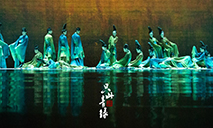The seven sins of the alliance system of the United States (part 6)
THE SIXTH SIN: COVERING UP MISDEEDS
In recent years, the United States has been judging right and wrong and treating other countries by whether they are allies or not in ways like covering up, giving unprincipled protection to and conniving at many misconducts of its allies, and even manipulating or taking advantage of their weaknesses to achieve its sinister geopolitical purpose.
◆Ignoring the interests of all mankind and the opposition of the international community, the United States connived at Japan's discharge of nuclear-contaminated water into the ocean.
On April 13, 2021, the Japanese government announced its decision to discharge over one million tons of nuclear-contaminated water from the Fukushima nuclear accident into the Pacific Ocean, sparking widespread doubts and grave concerns in Japan and among its neighboring countries. However, American and the Western media have barely voiced criticism, and many Western international organizations and politicians even defended Japan. The United States expressed its support for Japan's decision, saying that Japan "appears to have adopted an approach in accordance with globally accepted nuclear safety standards." U.S. Secretary of State Antony Blinken thanked Japan on Twitter for its "transparent efforts" in dealing with the nuclear-contaminated water.
A majority of the international community has questioned the U.S. support for Japan. On April 15, the special rapporteurs of the UN Human Rights Council on toxics and human rights, on right to food as well as on human rights and the environment issued a joint statement, expressing "deep regret at Japan's decision to release contaminated water from the destroyed Fukushima nuclear plant into the ocean" and saying the discharge "could impact millions of lives and livelihoods in the pacific region" and "imposes considerable risks to the full enjoyment of human rights of concerned populations in and beyond the borders of Japan." The experts said that the Japanese government's decision was highly concerning given the warnings about the effect of such a discharge on so many people and the environment at large. American marine conservation biologist Rick Steiner published a commentary on Anchorage Daily News, urging the U.S. government to immediately stop Japan's discharge plan, and advocating the international community to set up an investigation committee independent from the International Atomic Energy Agency to review issues related to Fukushima's treatment of nuclear-contaminated water and provide transparent, independent and scientific suggestions.
The United States seemingly supports Japan's release of nuclear-contaminated water, but it has in fact already put strict regulations on the import of Japanese products. In March 2021, the U.S. Food and Drug Administration updated the list of "Import Alert 99-33," but still restricted the import of certain agricultural, aquacultural, aquatic products and additional products from Japan out of consideration of nuclear radiation.
◆The United States provided cover for Japan to loosen control over military and helped Japan to lift the ban on its right of "collective self-defense."
Due to the crime of aggression it committed during World War II, Japan, according to Cairo Declaration, Potsdam Declaration and the Japanese Instrument of Surrender, should completely eradicate militarism and disarm its navy, army and air forces. However, in the early days of the Cold War, in order to contain socialism development, support and rearm Japan, the United States was lenient with a large number of Japanese militarists who committed war crimes, and acquiesced in some criminals returning to the Japanese politics. The United States self-willedly concluded the Treaty of Mutual Cooperation and Security Between the United States and Japan, signed and revised the Guidelines for Japan-U.S. Defense Cooperation, and has continuously expanded the scope of military operations of the U.S.-Japan Alliance. In addition, the United States connived at the Japanese government's move to enact the new legislation for peace and security and push for revising the Article 9 of the Japanese Constitution.
On July 1, 2014, the interim cabinet meeting of the Japanese government adopted a cabinet decision to reinterpret the Constitution to allow Japan to exercise the right of collective self-defense. Then U.S. Secretary of Defense Chuck Hagel issued a statement later, supporting the Japanese government's decision to lift the ban on the right of "collective self-defense" and welcoming the Japanese new policy. Foreign media analyzed that the United States was the most important driving force and the key factor behind Japan's violation of the pacifist Constitution and its rearmament.
◆The United States covered up the crimes committed by Unit 731 of the Imperial Japanese Army.
During the years following World War II, the United States successively sent several experts on germ warfare at Fort Detrick to Japan to collect information about bacteria warfare and other biological weapons from the main members of Unit 731, including Shiro Ishii, the head of Unit 731. In order to attain the Unit 731's data and material on germ warfare, the United States paid 250,000 yen, concealed the heinous crimes of Shiro Ishii and Unit 731 from the world, and even made him a consultant in biological weapons for Fort Detrick.
According to media reports, the United States offered Unit 731 immunity from war crimes charges in exchange for their data on experiments of human, bacteria and poison gas, as well as germ warfare, for its own biological weapons research purpose. The archives show that the covers of the reports on the experiments conducted by Unit 731 on Bacillus anthracis, Burkholderia mallei and Yersinia pestis all have written the words of "Biological Warfare Laboratory, Fort Detrick, Maryland" as well as the black ink print of "Technical Library, Dugway Proving Ground."
◆The Truman administration of the United States supported the apartheid policy in South Africa to avoid condemnation of its own racial policies from other countries.
After 1948, considering the Cold War, the U.S. interests in South Africa, and the weak anti-apartheid force in the United States, the Truman administration adopted a so-called "middle road" policy towards the apartheid policy in South Africa, that is, verbally opposing the apartheid policy in South Africa, while at the same time preventing the international community from intervening in the racial issues in South Africa. On March 21, 1960, South African white police officers opened fire on a crowd of protesters who were surrounding a police station in Sharpeville to protest against the apartheid policy, killing 69 people, including eight women and 10 children. This incident aroused widespread condemnation from the international community, and the United Nations also passed a resolution to criticize it. Against the backdrop that African-American civil rights movement rose in the United States, then U.S. government tried its best to favor then authorities of South Africa. The Mississippi State Legislature even passed a bill supporting the South African government's firmness in defending the apartheid policy and its unwavering determination in the face of protesters.
William Edmondson, former U.S. ambassador to South Africa, pointed out that because the United States itself was in a dilemma on civil rights issues, the U.S. government was diplomatically wary of racial issues in South Africa, lest the international community should turn its attention to civil rights issues on the U.S. soil. The research committee on American policy towards South Africa reported that because the United States was afraid that other countries might condemn its own racial policy, it supported South Africa and blocked the United Nations intervention in the apartheid policy with the excuse that the racial policy was South Africa's domestic issue.
◆On the Palestinian and Syrian issues, the United States has long taken sides with Israel in violation of relevant UN Security Council resolutions and international consensus.
Israel occupied East Jerusalem and parts of the West Bank during the Middle East War in 1967, and built Jewish settlements in the two districts, which has been considered illegal by the United Nations and the international community. The International Court of Justice pointed out that the construction of the separation wall has violated international law. For decades, the United States has supported Israel politically, economically and militarily, hence Israel gradually expanded its settlement plan in the occupied Palestinian territories. After Trump took office, he replaced the "two-state solution" with the so-called "Middle East Peace Plan." In December 2017, Trump formally recognized Jerusalem as the capital of Israel. In May 2018, the United States moved its embassy to Jerusalem. In November 2019, Pompeo announced that the United States no longer viewed Israel's settlements in the West Bank as inconsistent with international law. In October 2017, in order to oppose the so-called "anti-Semitism" activities of UNESCO and deny the legitimate struggle of the Palestinian people, the United States and Israel jointly withdrew from the UNESCO, which came into effect at the end of 2018.
On March 25, 2019, the United States recognized the Golan Heights as part of Israel through a presidential proclamation signed by Trump and then Israeli Prime Minister Benjamin Netanyahu, which drew global criticism, including from Syria, Russia and the UN. The Resolution 497 adopted by the UN Security Council in 1981 clearly stated that the Israeli decision to impose its laws, jurisdiction and administration in the occupied Syrian Golan Heights is null and void and without international legal effect. On Nov. 5, 2020, the UN General Assembly confirmed Syria's sovereignty over the Golan Heights occupied by Israel since the battle in June 1967. Guterres clearly emphasized that the status of the Golan Heights has not changed. In addition, Syria's Foreign Ministry issued a statement calling the U.S. decision in 2019 a shameless attack on Syria's sovereignty and territorial integrity. Russia warned the United States that its move seriously violated international law, would hinder the settlement of the Syrian conflict and intensify regional tensions in an all-round way.
◆The United States and its allies turn a blind eye to each other's serious social problems.
After the Floyd incident happened in the United States in 2020, the Canadian government only made a vague statement. Prime Minister of Canada Justin Trudeau tweeted that "in the U.S. today, we saw accountability for the murder of George Floyd. But make no mistake, systemic racism and anti-Black racism still exist. And they exist in Canada, too." This statement did not condemn the United States, which shows the Canadian government's cowardly mentality of not daring to criticize Washington publicly and appeasement to the country.
Meanwhile, the United States also turned a blind eye to racial problems in Canada. On June 3, 2019, at the opening ceremony of Women Deliver Conference as the Murdered Indigenous Women and Girls' final report was freshly released, Trudeau acknowledged the murders and disappearances of indigenous women and girls across Canada in recent decades as "genocide." However, U.S. politicians have been mute on this. Instead of condemning and criticizing Canada, U.S. public opinion claimed that the Canadian government had made great efforts to solve related problems.
◆American allies excessively give "green lights" to the United States when it comes to the application of international rules.
Australia claims to defend the "rules-based international order" and has stated that global order should be based on "agreed rules rather than on the exercise of power alone" in its 2017 foreign policy white paper. However, in order to tie in with the U.S. strategy towards the Middle East, Australia refused to recognize the decision of the International Criminal Court to accept Palestine as an observer state, and hindered the ICC from investigating Israel's alleged war crimes committed in the West Bank, East Jerusalem and the Gaza Strip. After the United States announced to move its embassy in Israel to Jerusalem, Australia changed its Middle East policy that lasted for decades and echoed that it would consider following the move of the United States.
In order to safeguard the military interests of the United States and the colonial interests of Britain in Diego Garcia, Australia opposed the ICJ advisory opinion on the decolonization of Chagos Archipelago and relevant resolutions by the UN General Assembly. (more)
Photos
 Dance show saluting traditional culture of the Song Dynasty makes its debut
Dance show saluting traditional culture of the Song Dynasty makes its debut Village in SW China’s Yunnan embraces prosperity through agricultural tourism
Village in SW China’s Yunnan embraces prosperity through agricultural tourism Eighth birthday for pair of giant pandas celebrated in Haikou, Hainan province
Eighth birthday for pair of giant pandas celebrated in Haikou, Hainan province Olympic gold medalists portrayed in Shanxi artist’s polymer clay sculptures
Olympic gold medalists portrayed in Shanxi artist’s polymer clay sculptures
Related Stories
- The seven sins of the alliance system of the United States (part 5)
- The seven sins of the alliance system of the United States (part 4)
- The seven sins of the alliance system of the United States (part 3)
- The seven sins of the alliance system of the United States (part 2)
- The seven sins of the alliance system of the United States (part 1)
Copyright © 2021 People's Daily Online. All Rights Reserved.






